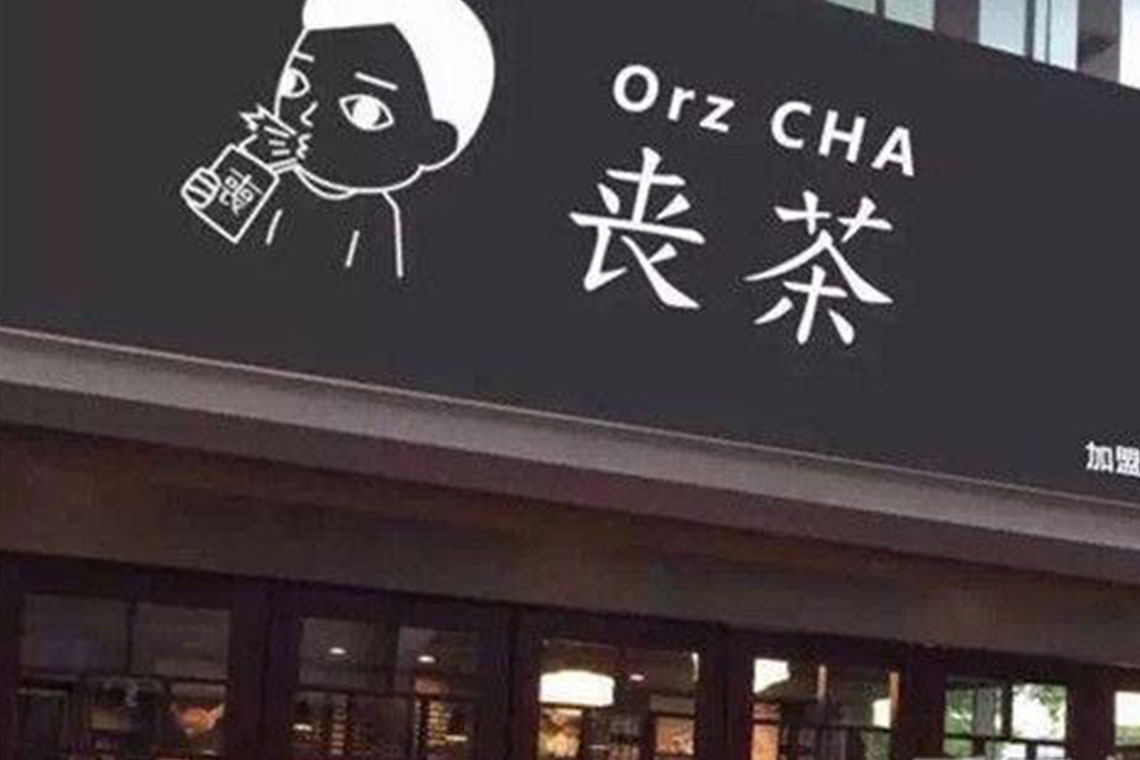People’s Daily: Stay away from the opium of demotivational culture
A summary of the top news in Chinese society and culture for August 18, 2017. Part of the daily The China Project newsletter, a convenient package of China’s business, political, and cultural news delivered to your inbox for free. Subscribe here.

“Why not open a core-socialist-value-themed tea shop?”
“You demand for me to be optimistic, but I just can’t fake a smile.”
These are typical social media comments that epitomize “demotivational culture” (丧文化 sàngwénhuà) — which refers to “a reduced work ethic, a lack of self-motivation, and an apathetic demeanor,” as Sixth Tone explains. The prevalence of such slacker attitudes among China’s youth has triggered concerns from the authorities. On August 17, state media People’s Daily published a commentary (in Chinese) that cautions young Chinese to “take the right path.” The article, however, has been widely mocked (in Chinese) on the internet.
The commentary first attacks a group of foreign internet memes that “represent depression and hopelessness,” such as Bojack Horseman, a Netflix animated comedy that was censored by China two days after its debut, and Pepe the Frog, the favorite cartoon character of Trump-era Nazis in America. Then the author shifts to a few domestic embodiments of demotivational culture, including:
- The “Ge You Slouch” (葛优躺 gěyōutǎng), a mesmerizing screenshot from the 1990s sitcom Love My Family (我爱我家 wǒ ài wǒjiā), where the middle-aged male character played by actor Ge You glues himself to a couch 24/7.
- A popular online phrase saying, “Why does youth have to be running and sweating? Why can’t I just waste time by the river?”
The article lays the blame for demotivational culture on Japanese animated characters coined by Japan and works of English literature such as The Catcher in the Rye. “Foreign demotivational culture has been proved to go hand in hand with high crime rates and high suicide rates,” it states. “Ideological opium will make numb young Chinese and lead them astray.” The commentary also argues that demotivational culture doesn’t have roots in Chinese traditional culture, as core socialist values are the “mainstream.”
It also calls out a Shanghai tea shop named ORZ Cha 丧茶, which can be translated as “Life Sucks Tea.” When it opened in May as a counter force to Heecaa Tea Shop 喜茶, whose Chinese name means “happy tea,” the brand instantly garnered buzz on the Chinese internet with its unusual selection of tea offerings, including oolong tea for those whose life is a total failure, black tea latte for those who keep gaining weight, and green tea for those work overtime a lot but never get their salaries increased. These products, says the article, are not just self-deprecation and stress relief, but they indicate that “our culture is being eroded.”
Though the author acknowledges that issues like “housing prices, employment, education, and marriage” are upsetting the country’s youth, he concludes the article with some encouraging words (that may seem cringeworthy to some): “Smile. Stand up. Be brave. We should never drink life sucks tea and must choose the right path.”
- LGBT
Film by Beijing students explores being young and transgender in China / NYT (paywall) - Food and drink
The New York Times issues mea culpa after ‘discovering’ bubble tea / Shanghaiist - Science fiction
Is sci-fi the next big Chinese cultural export after kung fu? / Caixin
See also on The China Project: The rise of Chinese sci-fi: No longer in the distant future - The elderly
China faces daunting challenges as senior care comes of age / Caixin - Entertainment
Wrestling bids to boost interest in China / BBC - Art
Remembering Ren Hang’s high-contrast charisma / Sixth Tone
See also on The China Project: The naked poetry of Ren Hang - Dali, Yunnan
The once-pristine paradise fighting a tide of tourism / Sixth Tone






